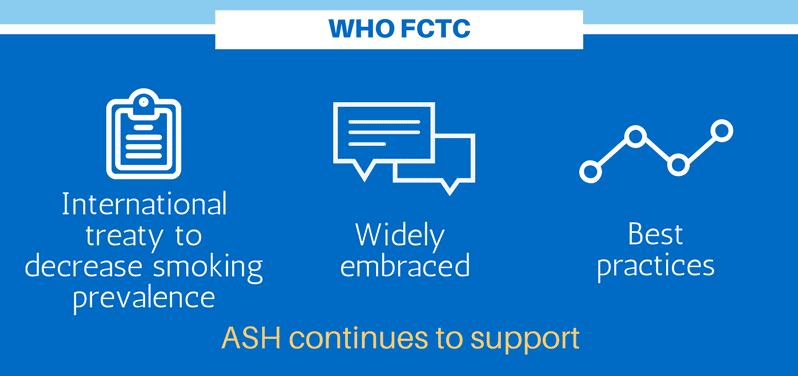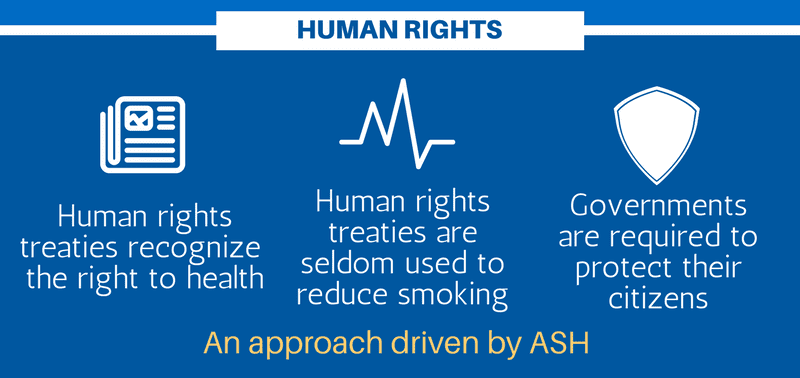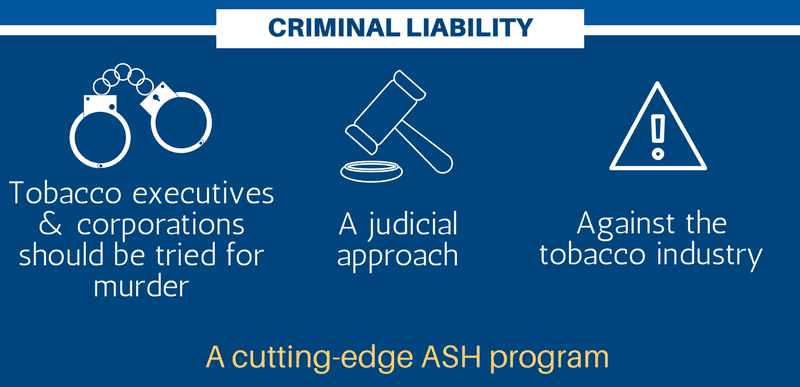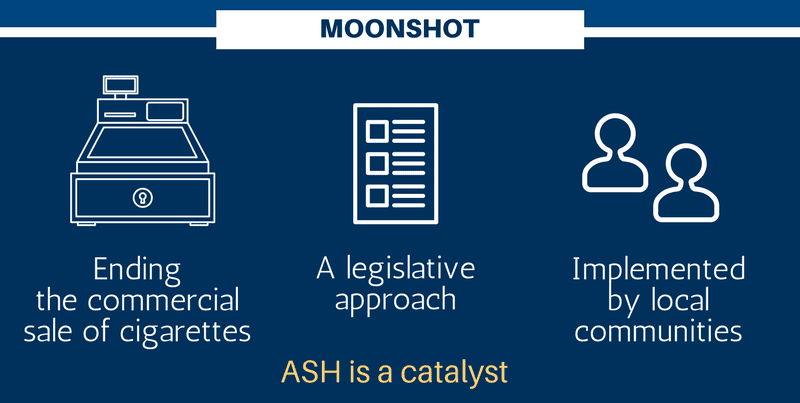2017 has been a very exciting year at ASH. We celebrated our 50th anniversary, announced our pivot away from “tobacco control” and towards “cigarette free” and earned numerous victories across each of our programs. As we begin looking forward into 2018 and beyond, we want to share with you how all of our programs work together towards the goal of a tobacco free world.

The WHO Framework Convention on Tobacco Control (FCTC) has been an important part of ASH’s work for 17 years. We support countries and groups that work to implement it, help to inform policy, and participate in the Governing Body of this treaty, the Conference of the Parties (COP) when in session. The FCTC has had great success in driving down tobacco prevalence around the world, and it is still extremely important today. However FCTC implementation is lagging behind and even in countries where implemented, the FCTC is meant to be a floor to reduce smoking prevalence, not a ceiling. Governments are encouraged to go beyond the best practices set out in the FCTC, and ASH’s other programs strive to do that.

ASH’s human rights program has been a part of our work for several years, but will see a large expansion in 2018. We will work to include tobacco in the agenda of several human rights treaty bodies, to publicize the connection between tobacco and human rights, and to encourage local organizations to take actions within human rights mechanisms in their own countries. Our goal is to change the mindset of both the tobacco control and human rights communities so that they (and the rest of the world) view tobacco as the human rights issue that it is.

ASH’s criminal liability project seeks to hold the tobacco industry and its executives criminally liable for the death and disease caused by tobacco. The idea of criminal charges against Big Tobacco is gaining traction around the world, and 2018 will likely see some exciting progress. When criminal liability succeeds, it will make it difficult, if not impossible, to legally continue to market and sell cigarettes.

ASH and our partners are working towards an alternative; a world where cigarettes are no longer sold as a consumer good. Smoking prevalence is now low enough in many places that ending one of the key drivers to smoking, cigarette sales, is possible. Of course, these programs would not neglect current addicted smokers; instead, cessation assistance would be increased. The only true way to end the tobacco epidemic is to prevent any new smokers from becoming addicted, and our “moonshot” program would be an important step towards that goal.
ASH’s approach to ending the tobacco epidemic relies on the interconnectedness of all of these programs.
In a victory for our human rights program this year, the Danish Institute on Human Rights stated that the best thing Philip Morris could do for tobacco is to stop marketing and selling it. This is also a victory for our Moonshot and criminal liability programs as well, because it is a step towards ending sales and a call for legal action if Philip Morris does not. Many of our successes support multiple programs. Our programs have a chain reaction- once one gains momentum, it accelerates the rest of them.
We are looking forward to this momentum carrying us into 2018. Please consider making a donation today to propel us even further.
Thank you for your continued dedication and support.








